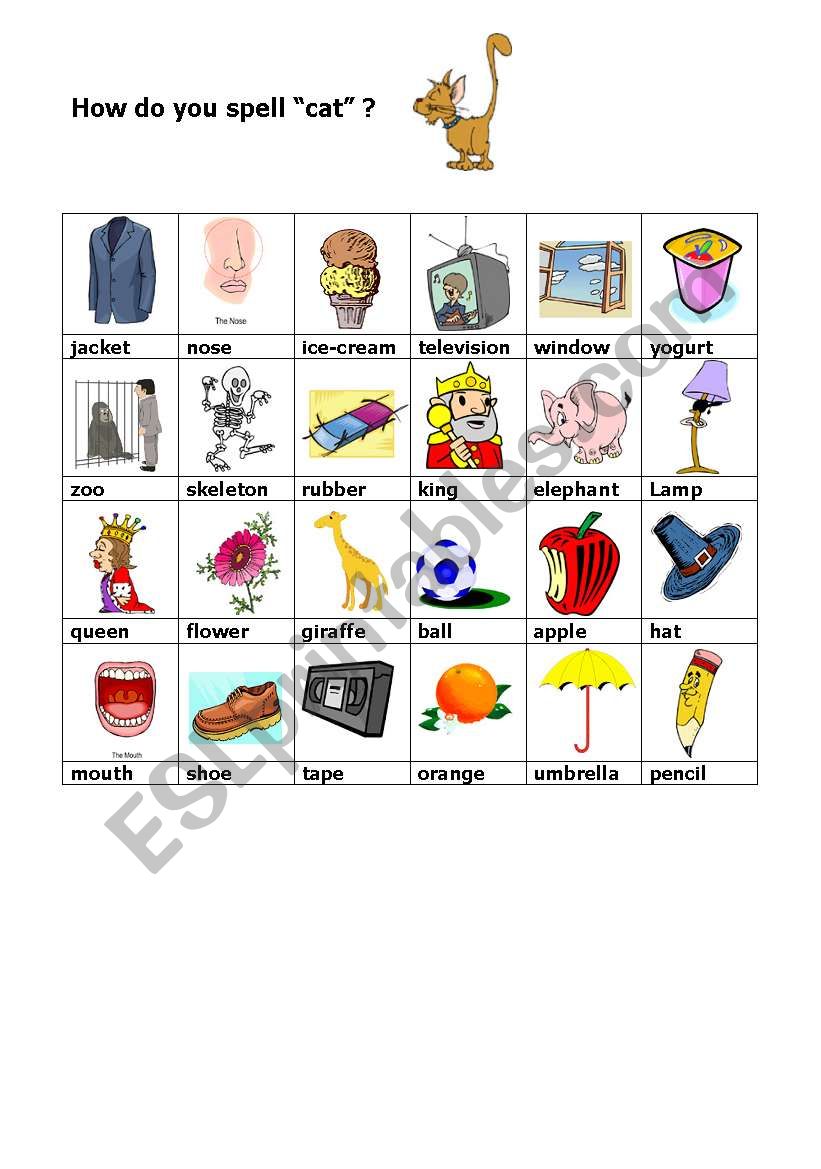

So no matter what your accent is, you’ll probably be understood using this alphabet system. Apparently the letters were chosen for understandability based on hundreds of thousands of comprehension tests involving 31 nationalities. A system was developed in the 1950s by the International Civil Aviation Organization to put a word with each letter. So many misunderstandings can happen when spelling. Why? I think it’s because unvoiced sounds like SS and TH don’t carry well over the phone.Īnd we have so many letter names that rhyme: B, C, D, E, G, P, T, V, Z, or A, J, K, or I, W But even though it’s so common, often, over the phone, people don’t understand me. Smith is the most common last name in the United States. So, there is a specific set of words corresponding to each letter of the alphabet to make spelling over the phone much easier.

Letter names, over the phone can be unclear and hard to distinguish, and not just for non-native speakers. Have you ever noticed, when you’re on the phone, that you often need to spell things out? Your name, for example, or maybe the name of the street you live on. YouTube blocked? Click here to see the video. Learn the target words in the NATO phonetic alphabet to make spelling out names, address, confirmation numbers, and more much easier!

The name NATO phonetic alphabet became widespread because it was NATO Allies who had spearheaded the final revision and because the signals used to facilitate the naval communications and tactics of the US and NATO have become global.Īpart from the traditional military usage, the NATO phonetic is often used in the retail industry, where customer or site details are spoken by telephone (to authorize a credit agreement or confirm stock codes), by IT professionals to communicate long codes or by airlines to communicate passenger name records internally.Ī spelling alphabet is also often called a ‘phonetic alphabet’, but this is not related to the usage of the same phrase in phonetics, which is used to indicate the sounds of human speech, such as the International Phonetic Alphabet.Alpha, bravo, Charlie: each letter of the alphabet has a target word to increase understandability in spelling. Telephone spelling alphabets were developed to improve communication since World War I, but the first non-military internationally recognized spelling alphabet was adopted by the CCIR (predecessor of the ITU) in 1927.ĭuring World War II, many nations used their own versions of a spelling alphabet, but the International Air Transport Association (IATA), recognizing the need for a single universal alphabet, presented a draft alphabet to the ICAO during 1947 that had sounds common to English, French, Spanish and Portuguese.ĭuring 1948-1949, Jean-Paul Vinay, a professor of linguistics at the Université de Montréal, collaborated with the ICAO on the development of a new spelling alphabet, with minimum requirements for the words to have a similar spelling in at least English, French, and Spanish, as well as be live words in each of these three languages.Įventually, the NATO alphabet became effective in 1956 and, a few years later, turned into the established universal phonetic alphabet for all military, civilian and amateur radio communications. Actually, as of 2002, the IMO’s GMDSS procedures permit the use of the ICAO numeral pronunciation. In practice, these are used rarely, as they frequently result in confusion between speakers of different languages. The IMO defines different pronunciation of numerals than does the ICAO:
#Spelling alphabet code#
However, each agency chooses one of two different sets of numeric code words. Note that “Alpha” is written as “Alfa” and “Juliet” is written as “Juliett”, which are the spellings still in use in the international version of the alphabet, to avoid possible critical mispronunciations by speakers of other languages.Īfter ICAO developed the phonetic, this was adopted by many other international and national organizations, including the IMO. The 26 code words in the spelling alphabet are assigned to the 26 letters of the English alphabet in alphabetical order as follows: Alfa, Bravo, Charlie, Delta, Echo, Foxtrot, Golf, Hotel, India, Juliett, Kilo, Lima, Mike, November, Oscar, Papa, Quebec, Romeo, Sierra, Tango, Uniform, Victor, Whiskey, X-ray, Yankee, Zulu.


 0 kommentar(er)
0 kommentar(er)
